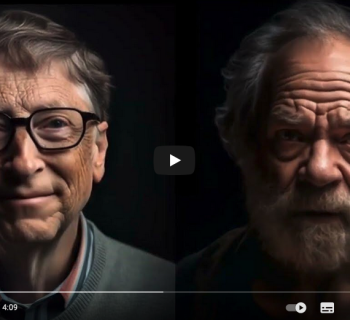 Regular readers will know I am working on a project on AI and Vocational Education and Training (VET). We are looking both at the impact of AI and automation on work and occupations and the use of AI for teaching and learning. Later in the year we will be organizing a MOOC around this: at the moment we are undertaking interviews with teachers, trainers , managers and developers (among others) in Italy, Greece, Lithuania, Germany and the UK.
Regular readers will know I am working on a project on AI and Vocational Education and Training (VET). We are looking both at the impact of AI and automation on work and occupations and the use of AI for teaching and learning. Later in the year we will be organizing a MOOC around this: at the moment we are undertaking interviews with teachers, trainers , managers and developers (among others) in Italy, Greece, Lithuania, Germany and the UK.
The interviews are loosely structured around five questions:
- What influence do you think AI and automation is going to have on occupations that you or your institution provide training for?
- Do you think AI is going to effect approaches to teaching and learning? If so could you tell us how?
- Have you or your institution any projects based around AI. If so could you tell us about them?
- How can curricula be updated quickly enough to respond to the introduction of AI?
- Do you think AI and automation will result in less jobs in the future or will it generate new jobs? If so what do you think the content of those jobs will be?
Of course it depends on the work role and interests of the interviewee as to which questions are most discussed. And rather than an interview, with the people I have talked with it tends to be more of a discussion.
while the outcomes of this work will be published in a report later this spring, I will publish here some of the issues which have been come up.
Last week I talked with Chris Percy, who describes himself as a Business strategy consultant and economist.
Chris sees AI and technology as driving an increasing pace of change in how work is done. He says the model for vocational education is to attend college to get skills and enter a trade for ten or twenty years – albeit with refreshers and licenses to update knowledge. This, he says, has been the model for the last 50 years but it may not hold if knowledge is so fast changing. He is not an AI evangelist and thinks changes feed through more slowly. With this change new models for vocational education and training are needed, although what that model might be is open. It could be e to spend one year learning in every seven years or one day a week for three months every year.
The main issue for VET is not how to apply AI but how we structure jobs, Lifelong Learning and pedagogy.
One problem, at least in the UK. has been a reduction in the provision of Life Long Learning has gone down in the UK. In this he sees a disconnect between policy and the needs of the economy. But it may also be that if change is slower than in the discourse it just has just not impacted yet. Tasks within a job are changing rather than jobs as a whole. We need to update knowledge for practices we do not yet have. A third possible explanation is that although there are benefits from new technologies and work processes the benefits from learning are not important enough for providing new skills.
New ways of learning are needed – a responsive learning based on AI could help here – but there is not enough demand to overcome inertia. The underpinning technologies are there but have not yet translated into schools to benefit retraining.
Relatively few jobs will disappear in their entirety – but a lot of logistics, front of store jobs, restaurants etc. will be transformed. It could be there will be a lower tier of services based on AI and automation and a higher tier with human provision. Regulators can inhibit the pace of change – which is uneven in different countries and cities e.g. Self driving cars.
In most of the rest of the economy people will change as tasks change. For example the use of digital search in the legal industry has been done by students, interns and paralegals because someone has to do it – now with AI supporting due diligence students can progress faster to more interesting parts of the work. Due diligence is now AI enabled.
Chris thinks that although AI and automation will impact on jobs, global economic developments will still be a bigger influence on the future of work.
More from the interviews later this week. In the meantime if you would like to contribute to the research - or just would like to contribute your ideas - please et in touch.








